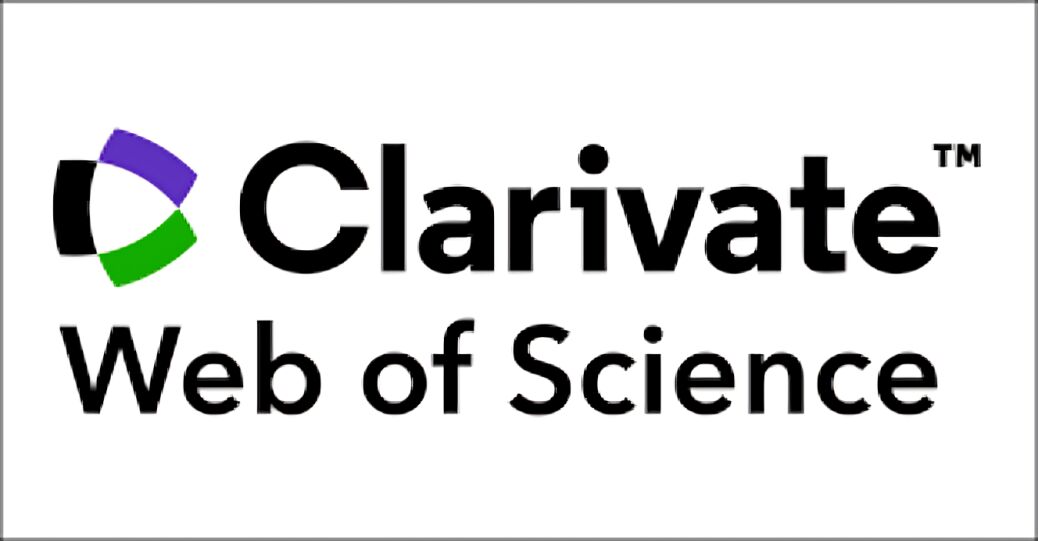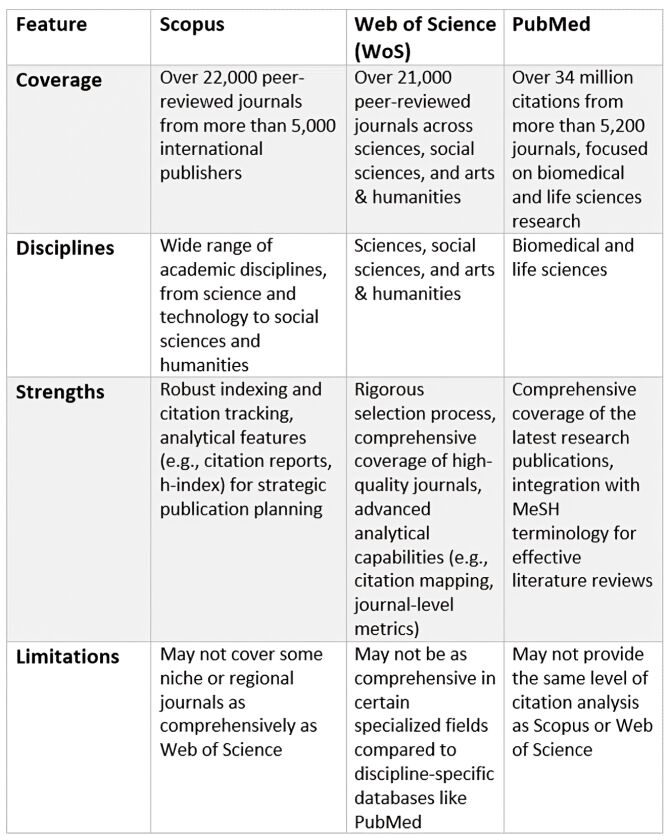Scopus, Web of Science, or PubMed? Choosing the Right Journal Database to Boost Your Research Profile


Scopus is a premier citation and abstract database covering various academic disciplines, from science and technology to the social sciences and humanities. With over 22,000 peer-reviewed journals from more than 5,000 international publishers, Scopus provides researchers with an extensive and diverse pool of scholarly literature to explore. The database's robust indexing and citation tracking capabilities allow users to assess the impact and influence of publications within their field, making it a valuable tool for strategic publication planning. Scopus also offers analytical features, such as citation reports and h-index calculations, that can help researchers benchmark their scholarly performance and identify high-impact journals for targeted publication.

Widely regarded as the gold standard in citation databases, the Web of Science (WoS) Core Collection has long been a go-to resource for researchers seeking to understand the intellectual landscape of their disciplines. Maintained by Clarivate, the WoS Core Collection indexes over 21,000 peer-reviewed journals across the sciences, social sciences, and arts and humanities. Its rigorous selection process and comprehensive coverage of high-quality journals make it an indispensable tool for evaluating research impact and identifying influential publication venues. The WoS also provides advanced analytical capabilities, such as citation mapping and journal-level metrics, empowering researchers to make informed decisions about their publication strategies.

PubMed is a specialized database run by the National Library of Medicine (NLM) that focuses on biomedical and life sciences research. With over 34 million citations from more than 5,200 journals, PubMed is an invaluable resource for researchers in fields such as medicine, biology, biochemistry, and healthcare. The database's comprehensive coverage of the latest research publications and its integration with MeSH (Medical Subject Headings) terminology make it an indispensable tool for conducting comprehensive literature reviews and staying up-to-date with the latest developments in one's area of expertise. While PubMed may not provide the same level of citation analysis as Scopus or the Web of Science, it remains a crucial resource for researchers in the health and life sciences.

When selecting the best journal database to boost your research profile, you must consider your academic discipline's specific needs and requirements. Researchers in the sciences, technology, engineering, and mathematics (STEM) fields may find the extensive coverage and robust citation analysis capabilities of Scopus or the Web of Science to be particularly useful for identifying high-impact publication venues and assessing the influence of their work. On the other hand, scholars in the biomedical and life sciences may gravitate towards PubMed, given its specialized focus and comprehensive indexing of the latest research in their fields.
Beyond disciplinary considerations, the choice of journal database may also depend on the specific publication goals and the researcher's strategies. For instance, those seeking to enhance their h-index and citation metrics may find the analytical tools in Scopus or the Web of Science to be more valuable, while researchers focused on staying abreast of the latest developments in their field may prioritize the comprehensive coverage and real-time updates offered by PubMed.
Ultimately, the decision to use Scopus, the Web of Science, or PubMed should be guided by a careful assessment of the researcher's needs, the nature of their research, and the nuances of their academic discipline. By leveraging the unique strengths and features of these premier journal databases, researchers can effectively position their work for maximum visibility, impact, and recognition within their respective fields.
Here is a summary of the key information about Scopus, Web of Science, and PubMed

Publication Support Service | SITA Academy
Are you looking to publish your research in top-tier academic journals indexed in renowned databases like Scopus, Web of Science, or PubMed? SITA can help streamline your publication journey. Our experienced team of research specialists is well-versed in the selection and submission process for these prestigious publication venues. We'll work closely with you to identify the most suitable journal options, ensure your manuscript meets the highest standards, and guide you through the submission and peer review stages. With our in-depth knowledge of indexing requirements and editorial preferences, we can maximize the impact and visibility of your work in these esteemed databases. Partner with SITA today and let us support you in successfully publishing in Scopus, Web of Science, PubMed, and other leading academic journals.
If you have any questions, inquiries, or would like to learn more about our services, please don't hesitate to reach out to us. Our dedicated team is ready to assist you.